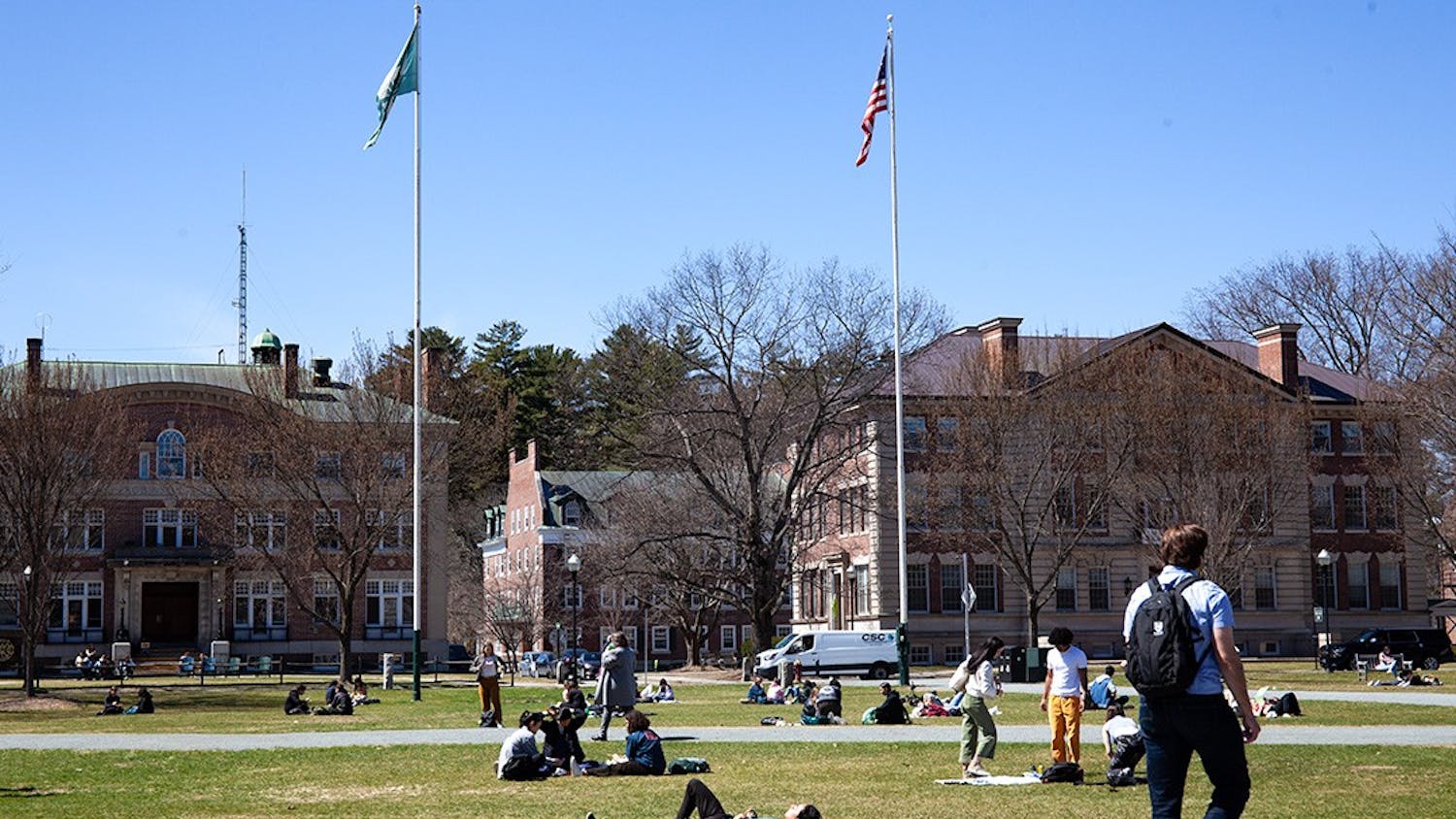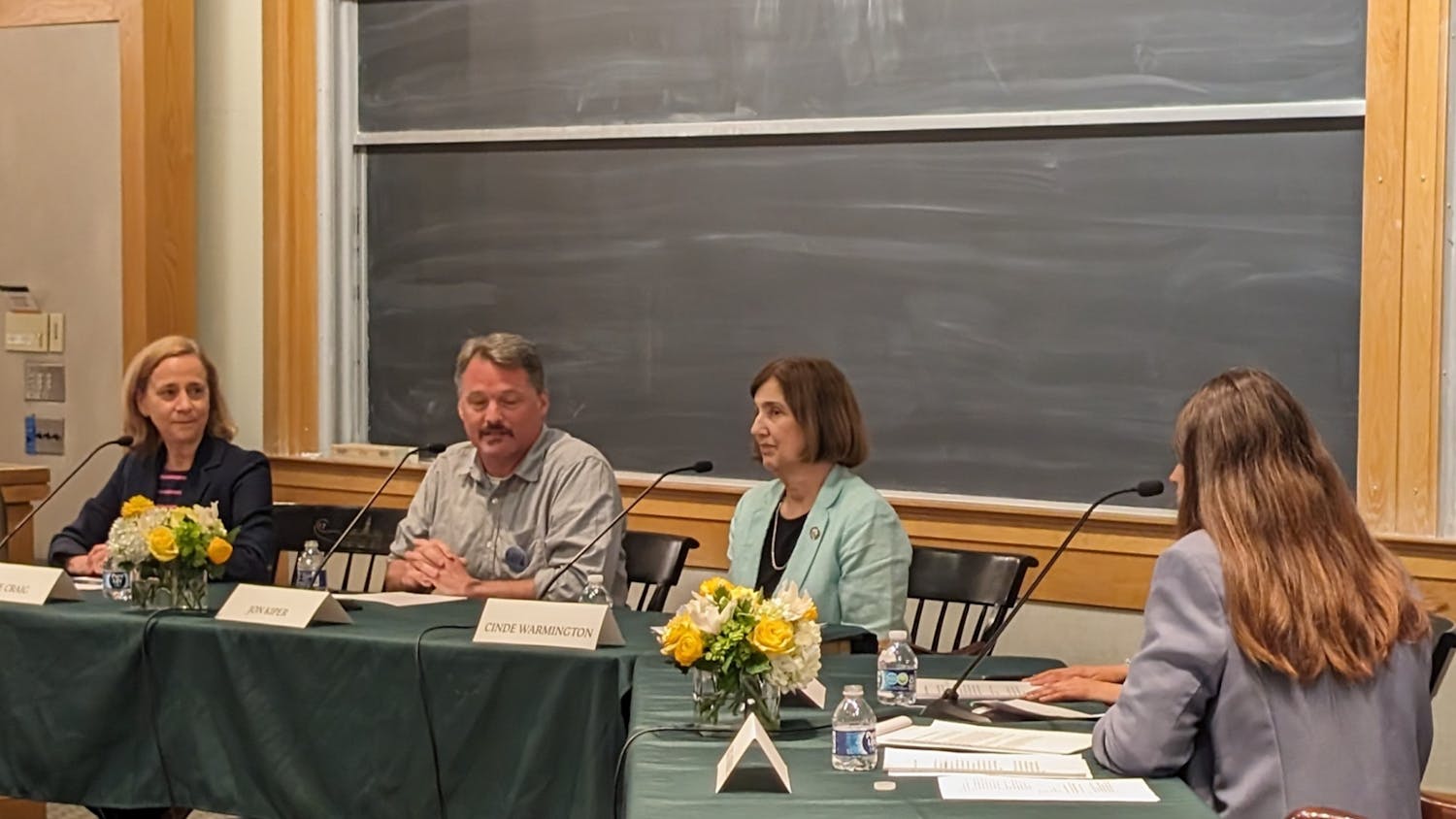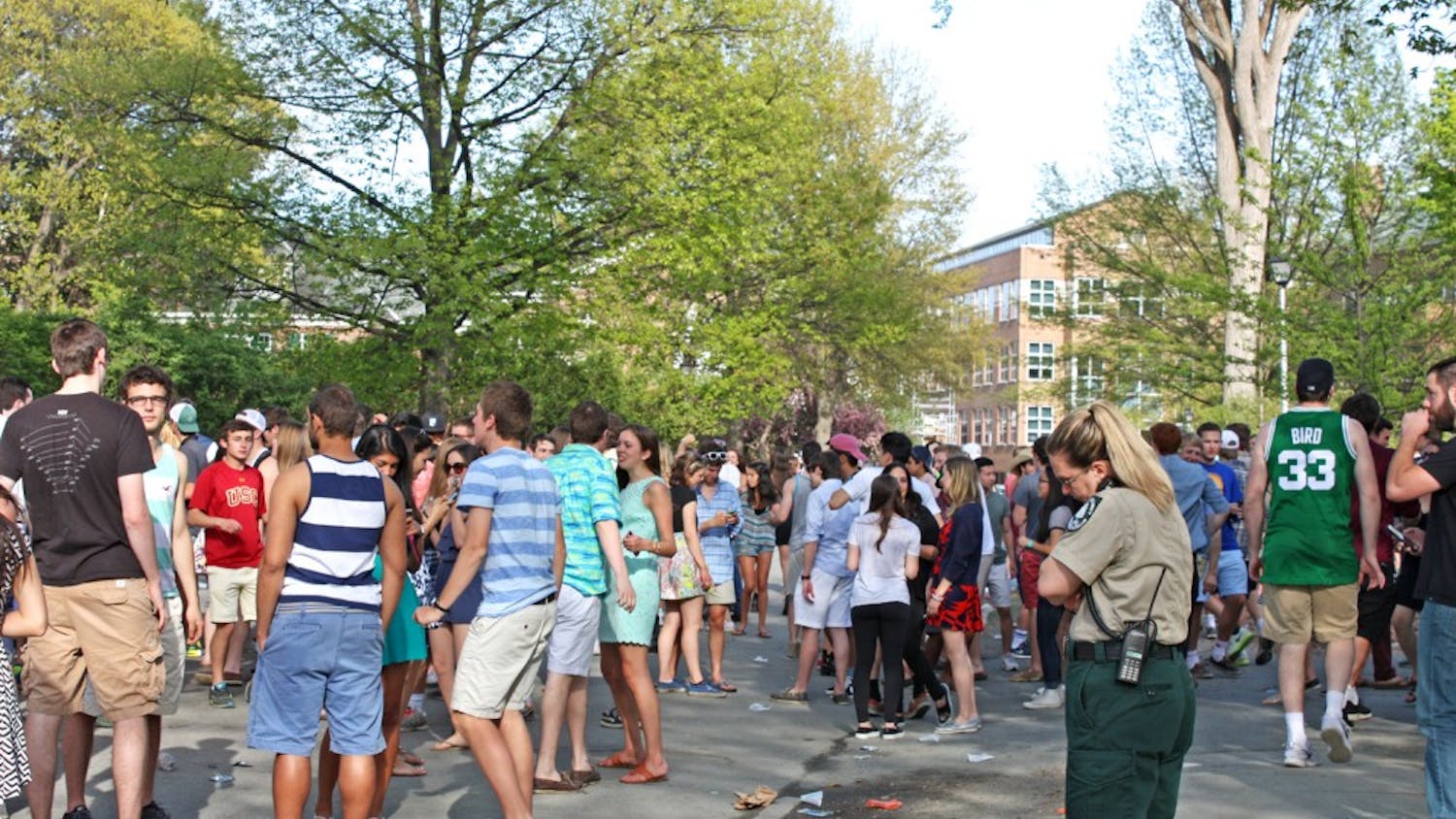Beginning next month, the College will put to use a portion of the 120 pounds of food scraps, milk cartons, paper, fuel and other raw materials the average person consumes every day.
Construction of the new Hanover/Dartmouth Composting Facility will be completed by May 18. Food waste will then be collected for composting and reuse on Dartmouth property.
The facility, operated by Resource Optimization Technologies, has been in the planning stages for the past two years. Permits for operation from the state should be obtained by Memorial Day, according to Director of Dartmouth Recycles Bill Hochstin.
The composting facility is located at the site of the now-closed Hanover Landfill site, a half-mile from the Dartmouth-Hitchcock Medical Center. The site was chosen because of its proximity to campus, and because it fit state requirements for distance from neighbors, Hochstin said.
The facility is designed to handle three individual solid compostable waste streams.
One stream will consist of organic College waste, including "milk cartons, pizza boxes, wax cardboard and even pork chops" from the dining and residence halls, Hochstin said. Mixed paper from College buildings and yard waste will also be collected.
The resulting compost will be used for campus grounds keeping, redressing athletic fields and for growing food on the Fullington Organic Farm to be sold in the dining halls.
A second waste stream will contain similar solid waste from the Hanover community. Included in that waste will be biosolids, or liquid "sludge," from the sewage treatment center.
"I think this [facility] will be a model for any community facing sludge issues," Hochstin said.
Waste collected from the community will be resold to the community as a nutrient-enhanced soil treatment, he said.
The third solid waste stream will be used for the research and development of "natural" ways to dispose of non-toxic medical waste from the DHMC and other solid wastes, like pressure-treated wood, that are not easily compostable.
Food waste from DDS will be collected from special dumpsters behind the dining halls, separated from regular trash. Waste from residence halls will be collected daily by janitors from special containers located in the bathrooms, according to Hochstin. The containers will be labeled with logos designed by members of the Environmental Studies Division of the Dartmouth Outing Club.
"The goal is to make [composting] as easy as possible," said Dartmouth Recycles intern Nicholas Dankers '01.
Collection of waste for a trial run of the facility could begin soon in the dining halls, and within the next two weeks in the residence halls, Hochstin said.
One result of the composting will be a reduction in the use of the dining hall dishroom disposals. This means less expensive water bills, sewage bills and repair bills for the College, Hochstin said.
Composting is also an "innovative" solution to the "egregious waste of resources at the Hop and Collis," said Patrick Leslie '01, another Dartmouth Recycles intern.
The composting plant is an "agitated-bed, aerated-pile facility," Hochstin said.
Each separate waste stream will be self-contained within the plant, mixed, chopped, heated at 140 degrees and digested by microbes occurring naturally in the waste. After 10 days, the waste will be brought out from the interior waste bins to cool and be tested for pathogens and harmful metals, such as lead.
The entire process, from trash to compost, is expected to take about two months, Hochstin said.
"Composting has a reputation of being a smelly mess," he said. But the new facility will counter odor by keeping the waste bins under "negative pressure," which is done by pumping air into the building, through the compost and then out through a biofilter, Hochstin explained.
Eventually, the plant will be expanded to include a greenhouse in which crops for the organic farm could be started in fresh compost. "It's all about closing the loop," he said.
The idea for a composting facility has its roots in a project examining waste disposal in Thayer Dining Hall conducted by an environmental studies class 10 years ago. The class found that 51 percent of the waste in Thayer could be composted, and from that report grew the current Dartmouth Recycles program.
In 1990, the College began to compost waste for reuse on campus, Hochstin said. The first composting site was a 10,000 square feet plot at the Organic Farm. "Preplate vegetable material from the preparation of salads, unsold bagels, coffee grounds and filters and wet paper towels" were composted at this site, he said. The new composting site is designed to handle a larger amount of waste than its predecessor.



